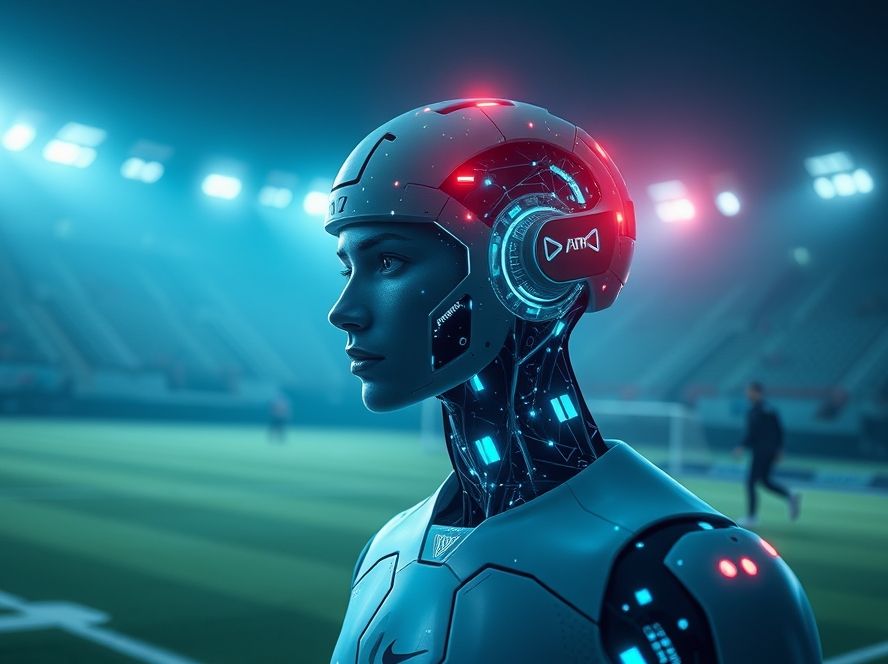Understanding AI for Sports
AI for Sports refers to the integration of artificial intelligence technologies in various aspects of sports, including training, performance analysis, injury prevention, and fan engagement. By leveraging machine learning algorithms, data analytics, and computer vision, AI systems can analyze vast amounts of data to provide insights that enhance athletic performance and improve the overall sporting experience.
The Importance of AI in Modern Sports
In recent years, AI has revolutionized the sports industry, emphasizing the need for data-driven decision-making. With the increasing availability of data from various sources, including wearables, sensors, and video footage, sports organizations are now more capable of understanding performance metrics than ever before. This not only helps in identifying talent but also in strategizing game plans and enhancing athlete training regimens.
Real-World Applications of AI in Sports
- Performance Analysis: AI tools can analyze player statistics and game footage to generate actionable insights. For instance, systems like Catapult monitor player movements and provide feedback to coaches and athletes.
- Injury Prevention: By analyzing historical injury data and real-time performance metrics, AI can help predict and prevent injuries. Wearable devices, such as WHOOP, use AI to track athletes’ recovery and exertion levels.
- Fan Engagement: AI chatbots enhance fan experiences by providing instant responses to inquiries. Platforms like IBM Watson are employed to engage fans with personalized experiences during games.
- Scouting and Recruitment: AI systems can analyze player performance data from various leagues, making the scouting process more efficient. Teams now use platforms like Stats Perform to identify potential recruits.
Key Technologies in AI for Sports
Several technologies form the foundation of AI applications in sports:
- Machine Learning: Algorithms learn from historical data and improve their predictions over time, providing insights into player performance and game strategies.
- Computer Vision: This technology analyzes video footage to track player movements and assess performance, enabling teams to analyze plays and strategies in detail.
- Natural Language Processing (NLP): NLP enhances communication, allowing AI systems to interpret and respond to fan queries effectively.
Practical Applications of AI for Athletes
Integrating AI into daily training routines can significantly enhance an athlete’s performance. Here are some practical applications:
- Training Customization: AI can tailor training programs based on individual performance metrics, ensuring athletes focus on areas needing improvement.
- Real-Time Feedback: Wearable technology provides athletes with immediate feedback on their performance, allowing for on-the-spot adjustments during training.
- Strategic Game Analysis: AI systems can evaluate opponents’ strategies and suggest optimal plays during matches, giving teams a competitive edge.
Future Trends in AI for Sports
The future of AI in sports looks promising, with several trends emerging:
- Enhanced Data Integration: As more data sources become available, AI systems will provide a more holistic view of athlete performance and health.
- Virtual Reality (VR) Training: Combining AI with VR can create immersive training experiences, helping athletes rehearse plays in a simulated environment.
- AI-Driven Fan Experiences: The personalization of fan experiences through AI will continue to evolve, making attending games more engaging and interactive.
Related Concepts in AI for Sports
Understanding AI for Sports also involves familiarity with related concepts, such as:
- Sports Analytics: The process of using data to analyze sports performance and inform decisions.
- Wearable Technology: Devices that monitor and collect data on athlete performance metrics.
- Big Data: The vast volume of structured and unstructured data that AI systems analyze for insights.
Conclusion: The Impact of AI on the Future of Sports
AI for Sports is transforming how athletes train, perform, and engage with fans. By understanding and implementing AI technologies, sports professionals can enhance performance, reduce injuries, and create more engaging experiences for fans. As AI continues to evolve, its role in sports will only become more significant, paving the way for innovations that we have yet to imagine.
Call to Action
As you explore the world of AI for Sports, consider how these insights can be applied to your own training or coaching practices. Whether you’re an athlete, coach, or sports enthusiast, embracing AI tools can lead to transformative results.









